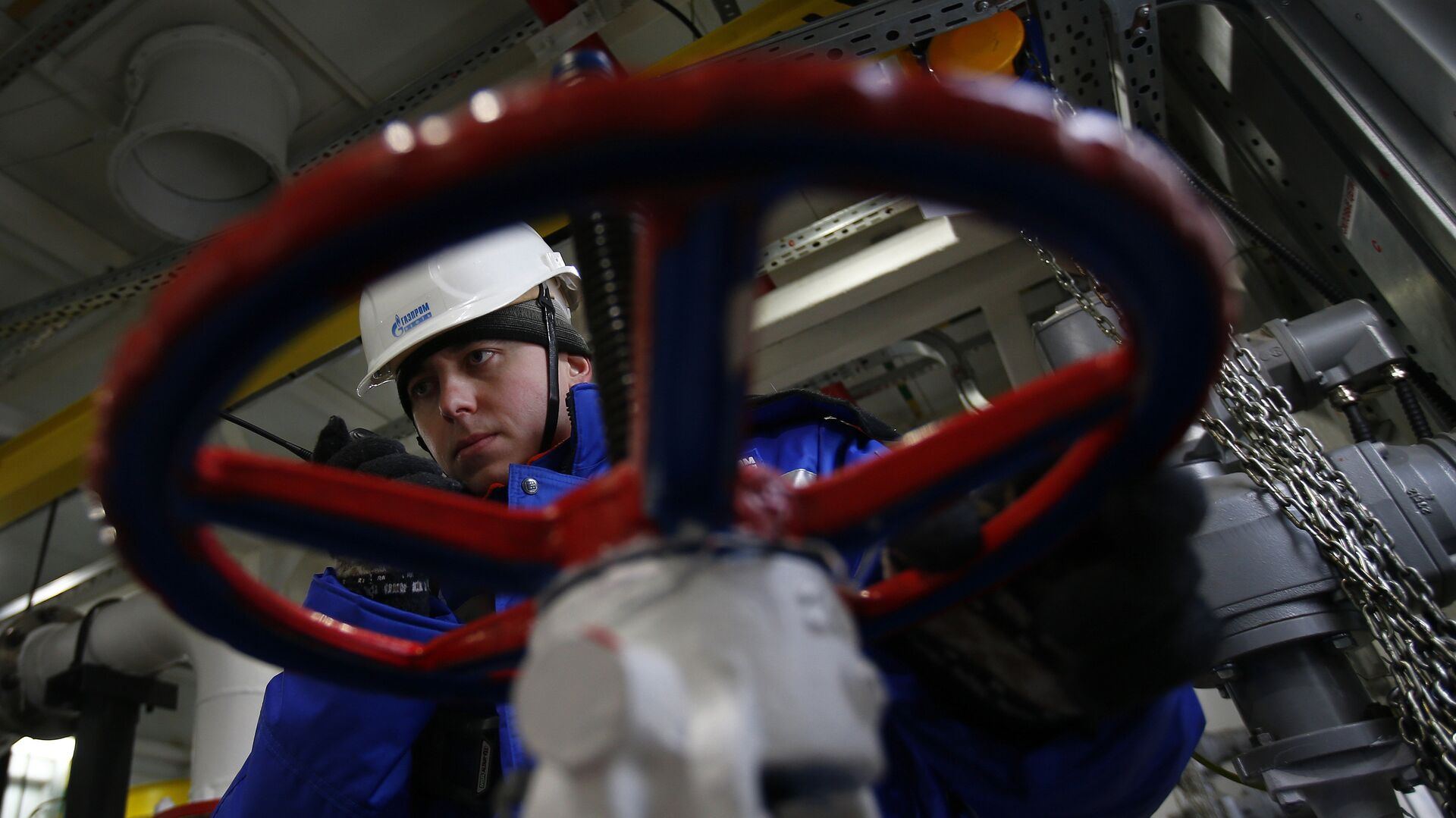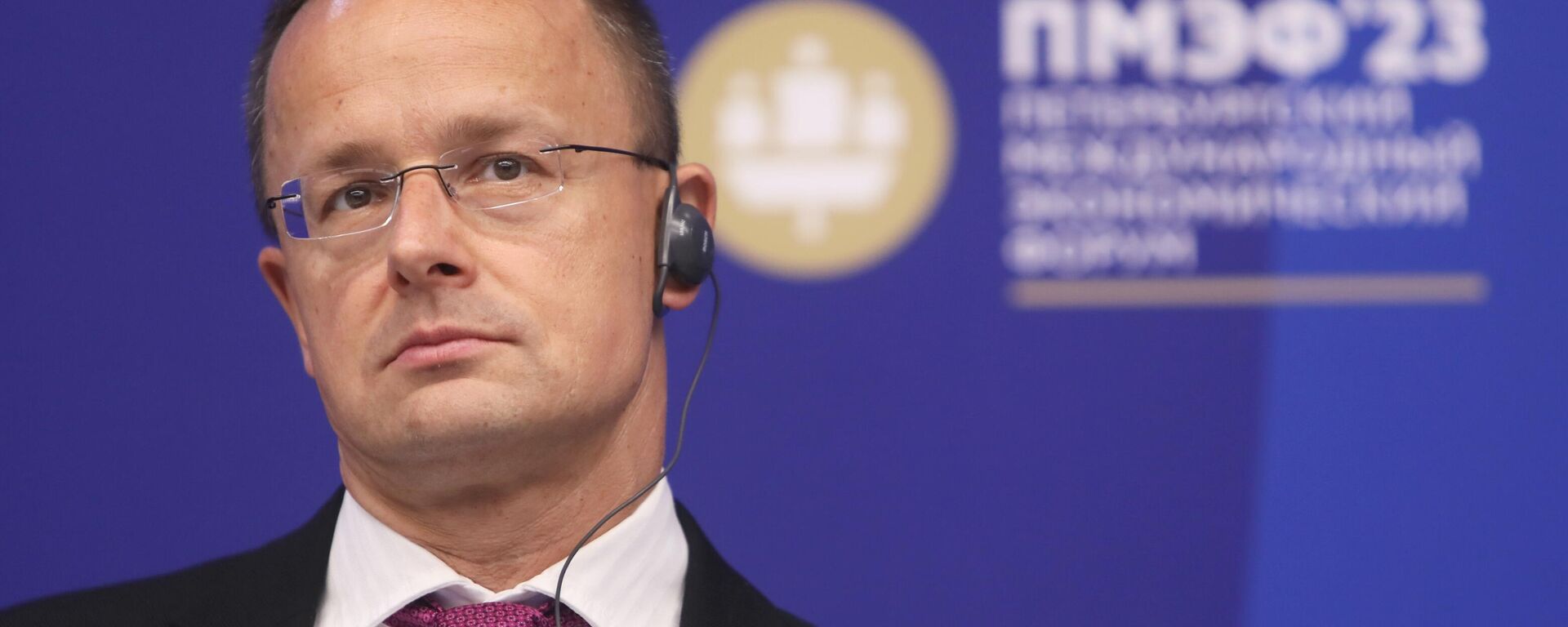https://sputnikglobe.com/20230904/what-is-the-russia-turkiye-gas-hub-and-why-is-it-important-1113114324.html
What is the Russia-Turkiye Gas Hub and Why is It Important?
What is the Russia-Turkiye Gas Hub and Why is It Important?
Sputnik International
Russian President Vladimir Putin signaled on Monday that in the near future, Moscow and Ankara will complete negotiations on the creation of a gas hub in Turkiye to make the energy situation in the region more balanced. How are the gas hub talks going?
2023-09-04T16:30+0000
2023-09-04T16:30+0000
2023-09-04T16:30+0000
russia
vladimir putin
recep tayyip erdogan
turkiye
ankara
european union (eu)
gazprom
liquefied natural gas (lng)
nord stream
turkstream
https://cdn1.img.sputnikglobe.com/img/103591/70/1035917083_0:182:4050:2460_1920x0_80_0_0_d8ac6112d69df12263b2420bf0159da7.jpg
Russo-Turkish energy cooperation is proceeding, as Russian President Vladimir Putin outlined on September 4. Turkiye buys around 45% of its natural gas from Russia per annum via the Blue Stream and TurkStream pipelines across the Black Sea, and is continuing to implement the Akkuyu Nuclear Power Plant project together with Moscow. Meanwhile, one project that has caught the world's attention is the Russo-Turkish gas hub, which, theoretically, may revive the fuel's flow to the EU.What is the Russo-Turkish Gas Hub?In the wake of the sabotage attack that destroyed Russia's Nord Stream infrastructure delivering the nation's natural gas to the EU, President Putin came up with an initiative on October 12, 2022 to redirect the supplies intended for the damaged pipelines to Turkiye and provide the fuel to Europe via a new route, "if our partners are interested in this." The Russian president talked about potentially building additional Black Sea links toward Turkiye.Ankara welcomed the proposal, with Turkish President Recep Tayyip Erdogan ordering on October 14, 2022 his government to promptly start work on the gas hub plan. Turkiye has the capacity to become a major international energy hub, the Turkish leadership told the media later in the month.Active negotiations on the hub project were suspended in March 2023 due to devastating earthquakes in southeastern Turkiye, but were very soon resumed.In April, Ankara initiated the process of introducing legislative amendments for the gas hub project proposed by Russia.The minister stated that Turkiye has the capacity to import up to 100 billion cubic meters of natural gas, 60% of which will be consumed domestically and 40% can be sold to neighboring countries.The Russo-Turkish gas hub project has been met with criticism in Washington, which urged Ankara to reduce "energy dependence" on Russia instead of "increasing" it. Erdogan's main presidential rival, Kemal Kilicdaroglu – who was seen favorably in the West at the time, particularly claimed in May that the idea of creating a gas hub in Turkiye is dangerous for Ankara and a threat to the country's energy independence. However, Erdogan won the race and the project kept going. Ankara signaled in late May that Turkiye plans to put the gas hub into operation by the end of 2023.Which Russian Company Will Implement the Gas Hub Project?Gazprom, one of the largest producers and exporters of liquefied natural gas (LNG) in Russia, was assigned to implement the project. The company presented its concept of a gas hub to Ankara in 2022, as per Gazprom's official report for 2022 published on its website.What's the 'Electronic Gas Trade Platform'?Speaking at a presser in St. Petersburg within the framework of the Russia-Africa Summit, President Putin clarified that Moscow and Ankara are planning to set up "an electronic trading platform."The Russian president underscored that Turkiye's role as a transit country was increasing. He stressed that it's a way to ensure their energy security, given that in September 2022 gas connections linking Russia to Europe were disrupted.Why is the Russo-Turkish Gas Hub Important?Per energy observers, the Russo-Turkish gas hub project came as a counter-balance to Washington's efforts to increase the Old Continent's dependence on US liquefied natural gas (LNG). The destruction of the Nord Stream 1 and 2 pipelines, which were designed to deliver 110 billion cubic meters to Europe annually, was attributed by Pulitzer Prize-winning journalist Seymour Hersh to the Biden administration and its Norwegian allies.Washington's attempts to pin the blame, first on Russia, then on some volunteer saboteurs, and finally on Ukraine have not been backed by any credible evidence. The US mainstream press admitted late last year that Russia had no rationale to blow its own pipelines up.Vladimir Putin's gas hub announcement in October 2022 further undermined the West's claims that Moscow was seeking to strangle Europe by depriving it of the much-needed fuel. The Russian president was clear that Moscow was willing to resume gas flows to the European bloc.At the same time, the sabotage attack sent already soaring energy prices even higher in the EU. US LNG producers did not miss the opportunity to sell gas to their European allies at top dollar, despite complaints from Berlin and Paris.Europe became the main destination for US LNG exports in 2022, accounting for 64% (6.8 Bcf/d) of total exports, according to the US Energy Information Administration (EIA).Four countries, namely France, the UK, Spain, and the Netherlands, accounted for a combined 74% (5.0 Bcf/d) of US LNG exports to Europe.Remarkably, at the same time, US LNG exports to Asia and Latin America declined by 46% and 62%, respectively, in 2022.While Russia and Turkiye are interested in stepping up gas trade, Europe is also interested in the growth of Russian gas deliveries through the "Turkish corridor" to ensure its independence and strategic sovereignty.How US' ICE Shapes EU Gas PricesWhat's more, the US got an opportunity to shape the gas price for the EU, according to Russian energy experts. Prior to the Nord Stream sabotage, the European Commission cancelled long-term gas contracts in the EU and stipulated that prices would form as a result of trading in several regional gas hubs. The bloc's Third Energy Package for the internal energy market established the euro-denominated TTF (Title Transfer Facility).The TTF has become the main reference virtual market for gas trading in Europe, which is based in Amsterdam, the Netherlands. Still, one should bear in mind that the TTF benchmark is managed by Intercontinental Exchange, Inc. (ICE) – an American company formed in 2000 that operates global financial exchanges and clearing houses.If the Nord Stream 2 gas pipeline and the entire network of onshore gas pipelines in Germany, the Czech Republic, and Austria were put into operation, the German THE (Trade Hub Europe) would become the largest hub in Northern Europe. At the same time, the Austrian CEGH (Central European Gas Hub) would become the largest for Central and South Europe, Russian energy experts say.The destruction of Nord Stream strengthened the leadership of the TTF market and, consequently, the position of ICE, which currently has zero competitors in Europe determining the price of natural gas across the EU.Now that Turkiye is set to become a major gas hub, the deliveries of Russian natural gas to Europe could be resumed, which may upend ICE's "monopoly."
https://sputnikglobe.com/20221016/all-nord-stream-gas-volumes-can-be-redirected-via-turkish-hub-gazprom-says-1101899938.html
https://sputnikglobe.com/20230217/gazprom-ceo-assures-putin-russia-has-enough-gas-for-decades-to-come-1107551662.html
https://sputnikglobe.com/20230615/europe-could-face-more-severe-energy-crisis-next-winter--hungarian-fm-1111192668.html
https://sputnikglobe.com/20230830/ukraine-back-in-the-frame-for-nord-stream-pipeline-bombing-1112994813.html
https://sputnikglobe.com/20230822/gas-futures-in-europe-exceed-500-per-1000-cubic-meters-first-time-since-jun-15---ice-1112788741.html
https://sputnikglobe.com/20230904/putin-erdogan-meeting-enlarged-format-starts-in-sochi---sputnik-correspondent-1113103692.html
russia
turkiye
ankara
norway
Sputnik International
feedback@sputniknews.com
+74956456601
MIA „Rossiya Segodnya“
2023
News
en_EN
Sputnik International
feedback@sputniknews.com
+74956456601
MIA „Rossiya Segodnya“
Sputnik International
feedback@sputniknews.com
+74956456601
MIA „Rossiya Segodnya“
russia-turkiye gas hub, russo-turkish gas hub, nord stream, nord stream sabotage, energy security eu, vladimir putin, recep tayyip erdogan, turkey gas pipeline, oil and gas turkey, turkey russian gas, russia gas hub, erdogan free gas, turkey gas hub
russia-turkiye gas hub, russo-turkish gas hub, nord stream, nord stream sabotage, energy security eu, vladimir putin, recep tayyip erdogan, turkey gas pipeline, oil and gas turkey, turkey russian gas, russia gas hub, erdogan free gas, turkey gas hub
What is the Russia-Turkiye Gas Hub and Why is It Important?
Russian President Vladimir Putin signaled on Monday that in the near future, Moscow and Ankara will complete negotiations on the creation of a gas hub in Turkiye to make the energy situation in the region more balanced. How are the gas hub talks going?
Russo-Turkish energy cooperation is proceeding, as Russian President Vladimir Putin outlined on September 4. Turkiye buys around 45% of its natural gas from Russia per annum via the
Blue Stream and
TurkStream pipelines across the Black Sea, and is continuing to implement the Akkuyu Nuclear Power Plant project together with Moscow. Meanwhile, one project that has caught the world's attention is
the Russo-Turkish gas hub, which, theoretically, may revive the fuel's flow to the EU.
What is the Russo-Turkish Gas Hub?
In the wake of the sabotage attack that destroyed Russia's Nord Stream infrastructure delivering the nation's natural gas to the EU, President Putin came up with an initiative on October 12, 2022 to redirect the supplies intended for the damaged pipelines to Turkiye and provide the fuel to Europe via a new route, "if our partners are interested in this." The Russian president talked about potentially building additional Black Sea links toward Turkiye.
Ankara welcomed the proposal, with Turkish President Recep Tayyip Erdogan ordering on October 14, 2022 his government to promptly
start work on the gas hub plan. Turkiye has the capacity to become
a major international energy hub, the Turkish leadership told the media later in the month.
Active negotiations on the hub project were suspended in March 2023 due to devastating earthquakes in southeastern Turkiye, but were very soon resumed.
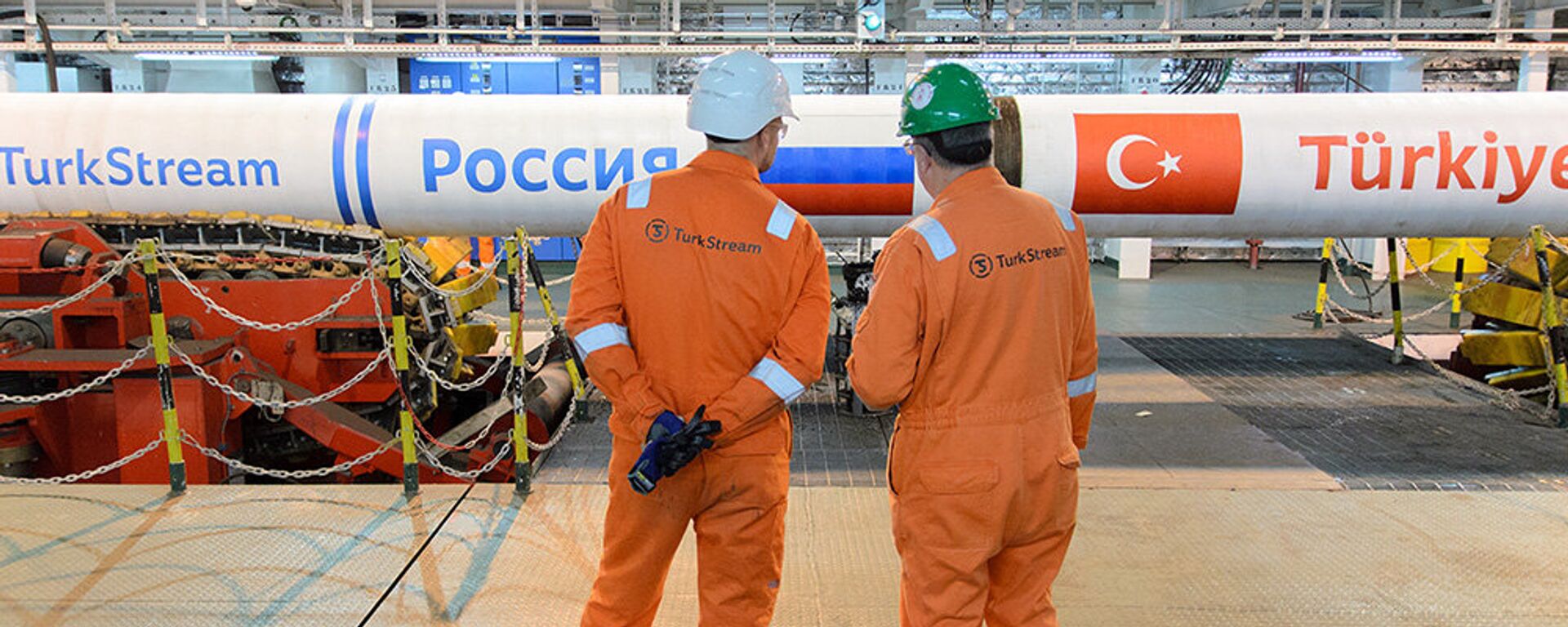
16 October 2022, 11:45 GMT
In April, Ankara initiated the process of introducing
legislative amendments for the gas hub project proposed by Russia.
"We have an opportunity to become an important center of [gas] trade to Eastern European countries. We have taken steps to this end. When our president approves changes to the bill passed by the parliament, new legal measures will be established. The old law regulated the domestic market. It was more restrictive. With the new law, we have ensured greater freedom," Turkish Energy Minister Fatih Donmez told journalists on April 8.
The minister stated that Turkiye has the capacity to import up to 100 billion cubic meters of natural gas, 60% of which will be consumed domestically and 40% can be sold to neighboring countries.
The Russo-Turkish gas hub project has been met with criticism in Washington, which urged Ankara to reduce "energy dependence" on Russia instead of "increasing" it. Erdogan's main presidential rival, Kemal Kilicdaroglu – who was seen favorably in the West at the time, particularly claimed in May that the idea of creating a gas hub in Turkiye is dangerous for Ankara and a threat to the country's energy independence. However, Erdogan won the race and the project kept going. Ankara signaled in late May that Turkiye plans to put the gas hub into operation by the end of 2023.
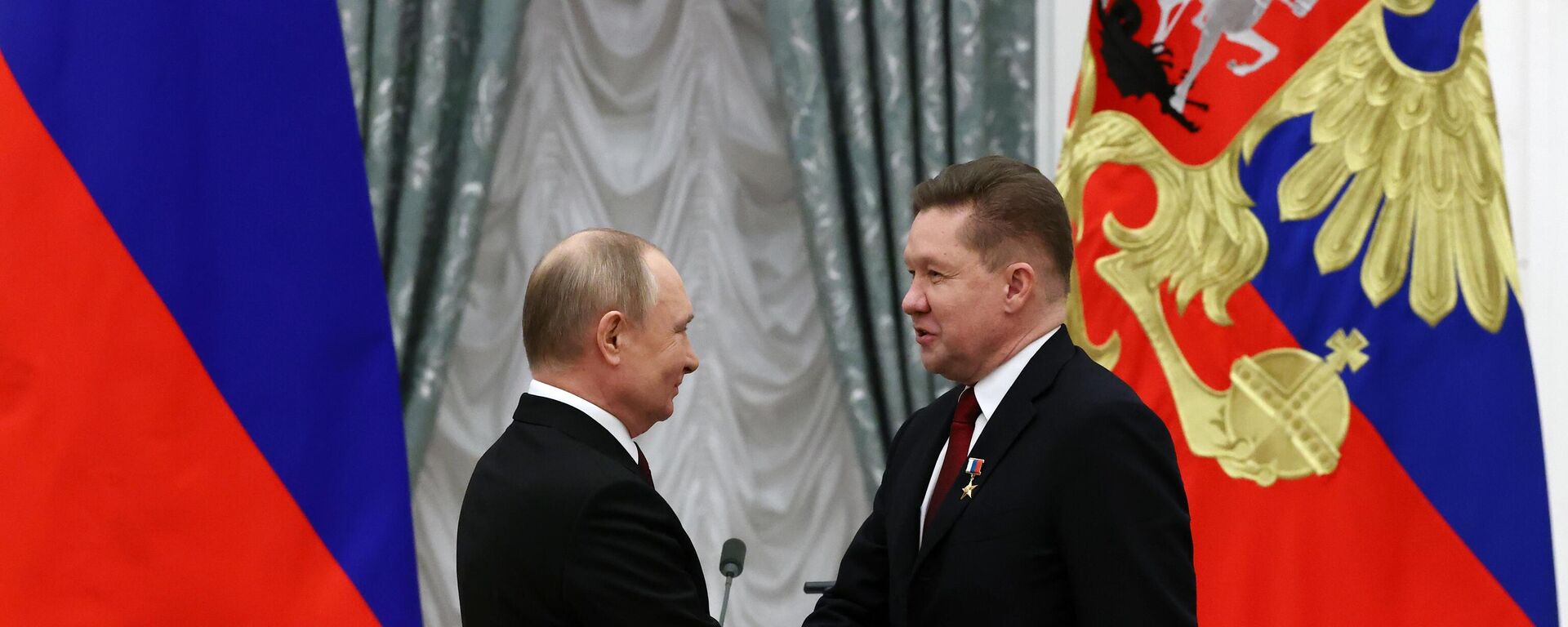
17 February 2023, 15:48 GMT
Which Russian Company Will Implement the Gas Hub Project?
Gazprom, one of the largest producers and exporters of liquefied natural gas (LNG) in Russia, was assigned to implement the project. The company presented its concept of a gas hub to Ankara in 2022, as per Gazprom's official report for 2022 published on its website.
What's the 'Electronic Gas Trade Platform'?
Speaking at a presser in St. Petersburg within the framework of the Russia-Africa Summit, President Putin clarified that Moscow and Ankara are planning to set up "an electronic trading platform."
"I want to make it clear that this is not oil or an oil storage facility, this is gas. Both we and our Turkish friends know this. We are talking about creating an electronic trading platform," Putin told journalists. "It's just a convenient place to organize such an electronic trading platform, because Turkiye has become a transit country for Europe."
The Russian president underscored that Turkiye's role as a transit country was increasing. He stressed that it's a way to ensure their energy security, given that in September 2022 gas connections linking Russia to Europe were disrupted.
Why is the Russo-Turkish Gas Hub Important?
Per energy observers, the Russo-Turkish gas hub project came as a counter-balance to Washington's efforts to increase the Old Continent's dependence on US liquefied natural gas (LNG). The destruction of the Nord Stream 1 and 2 pipelines, which were designed to deliver 110 billion cubic meters to Europe annually, was attributed by Pulitzer Prize-winning journalist Seymour Hersh to the Biden administration and its Norwegian allies.
Washington's attempts to pin the blame, first on Russia, then on some volunteer saboteurs, and finally on Ukraine have not been backed by any credible evidence. The US mainstream press admitted late last year that Russia had no rationale to blow its own pipelines up.
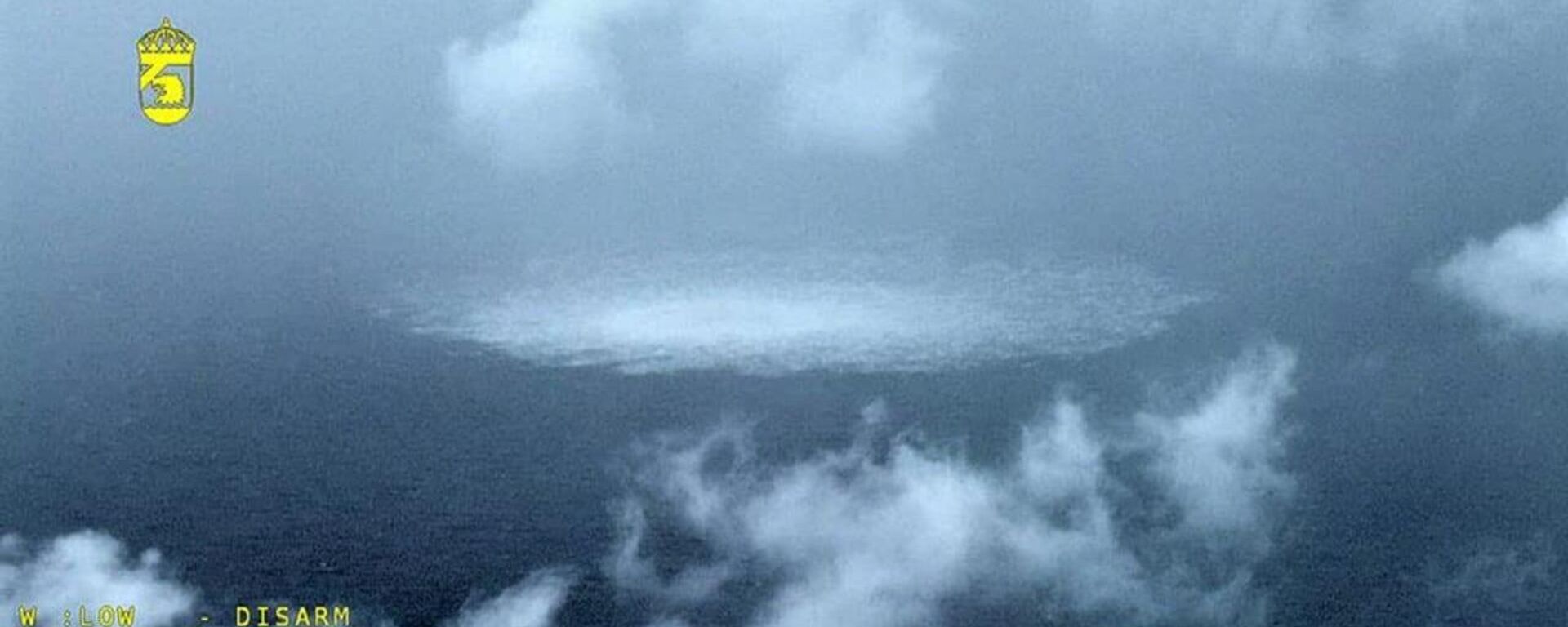
30 August 2023, 19:32 GMT
Vladimir Putin's gas hub announcement in October 2022 further undermined the West's claims that Moscow was seeking to strangle Europe by depriving it of
the much-needed fuel. The Russian president was clear that Moscow was willing to resume gas flows to the European bloc.
At the same time, the sabotage attack sent already soaring energy prices even higher in the EU. US LNG producers did not miss the opportunity to sell gas to their European allies at top dollar, despite complaints from Berlin and Paris.
Europe became the main destination for US LNG exports in 2022, accounting for 64% (6.8 Bcf/d) of total exports, according to the US Energy Information Administration (EIA).
Four countries, namely France, the UK, Spain, and the Netherlands, accounted for a combined 74% (5.0 Bcf/d) of US LNG exports to Europe.
"Europe’s LNG import capacity expanded in 2022; and we expect it to grow by one-third by the end of 2024, as countries add new LNG regasification facilities and expand existing import terminals," the agency projected.
Remarkably, at the same time, US LNG exports to Asia and Latin America declined by 46% and 62%, respectively, in 2022.
While Russia and Turkiye are interested in stepping up gas trade, Europe is also interested in the growth of Russian gas deliveries through the "Turkish corridor" to ensure its independence and strategic sovereignty.
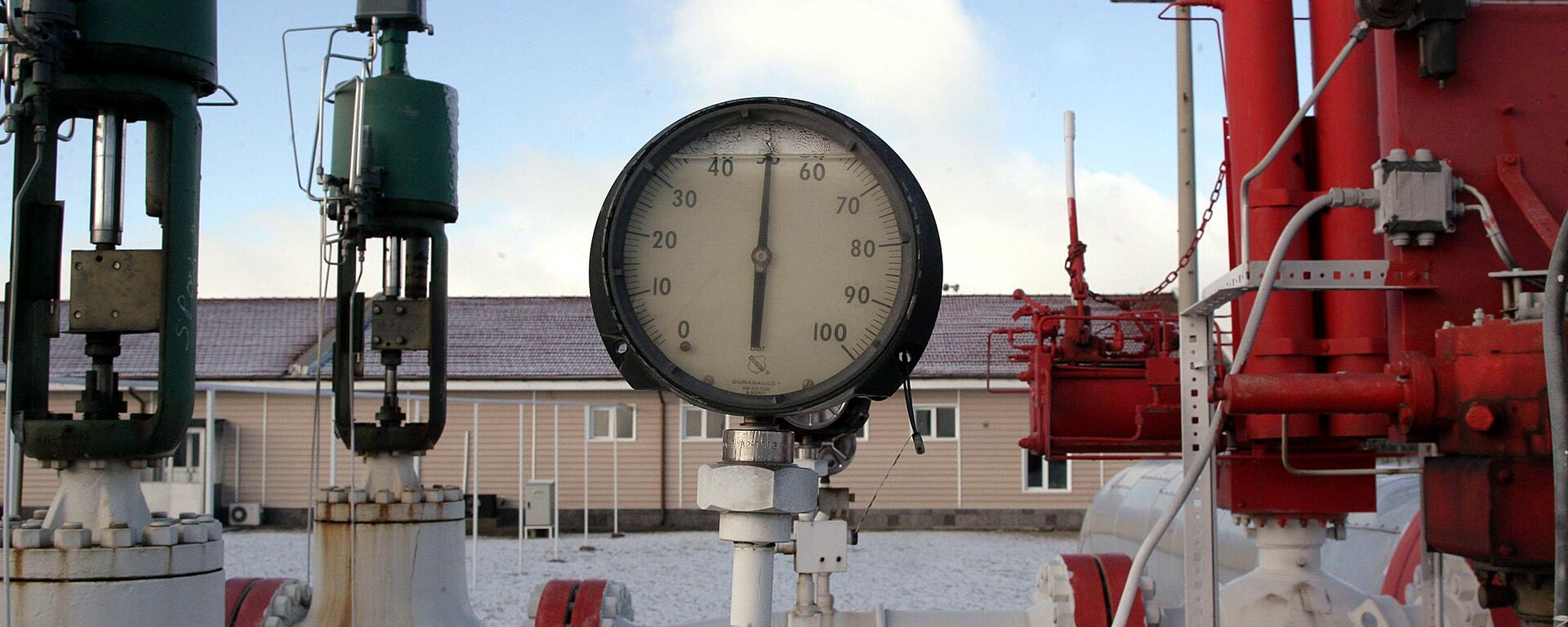
22 August 2023, 13:21 GMT
How US' ICE Shapes EU Gas Prices
What's more, the US got an opportunity to shape the gas price for the EU, according to Russian energy experts. Prior to the Nord Stream sabotage, the European Commission cancelled long-term gas contracts in the EU and stipulated that prices would form as a result of trading in several regional gas hubs. The bloc's Third Energy Package for the internal energy market established the euro-denominated TTF (Title Transfer Facility).
The TTF has become the main reference virtual market for gas trading in Europe, which is based in Amsterdam, the Netherlands. Still, one should bear in mind that the TTF benchmark is managed by Intercontinental Exchange, Inc. (ICE) – an American company formed in 2000 that operates global financial exchanges and clearing houses.
If the Nord Stream 2 gas pipeline and the entire network of onshore gas pipelines in Germany, the Czech Republic, and Austria were put into operation, the German THE (Trade Hub Europe) would become the largest hub in Northern Europe. At the same time, the Austrian CEGH (Central European Gas Hub) would become the largest for Central and South Europe, Russian energy experts say.
The destruction of Nord Stream strengthened the leadership of the TTF market and, consequently, the position of ICE, which currently has zero competitors in Europe determining the price of natural gas across the EU.
Now that Turkiye is set to become a major gas hub, the deliveries of Russian natural gas to Europe could be resumed, which may upend ICE's "monopoly."
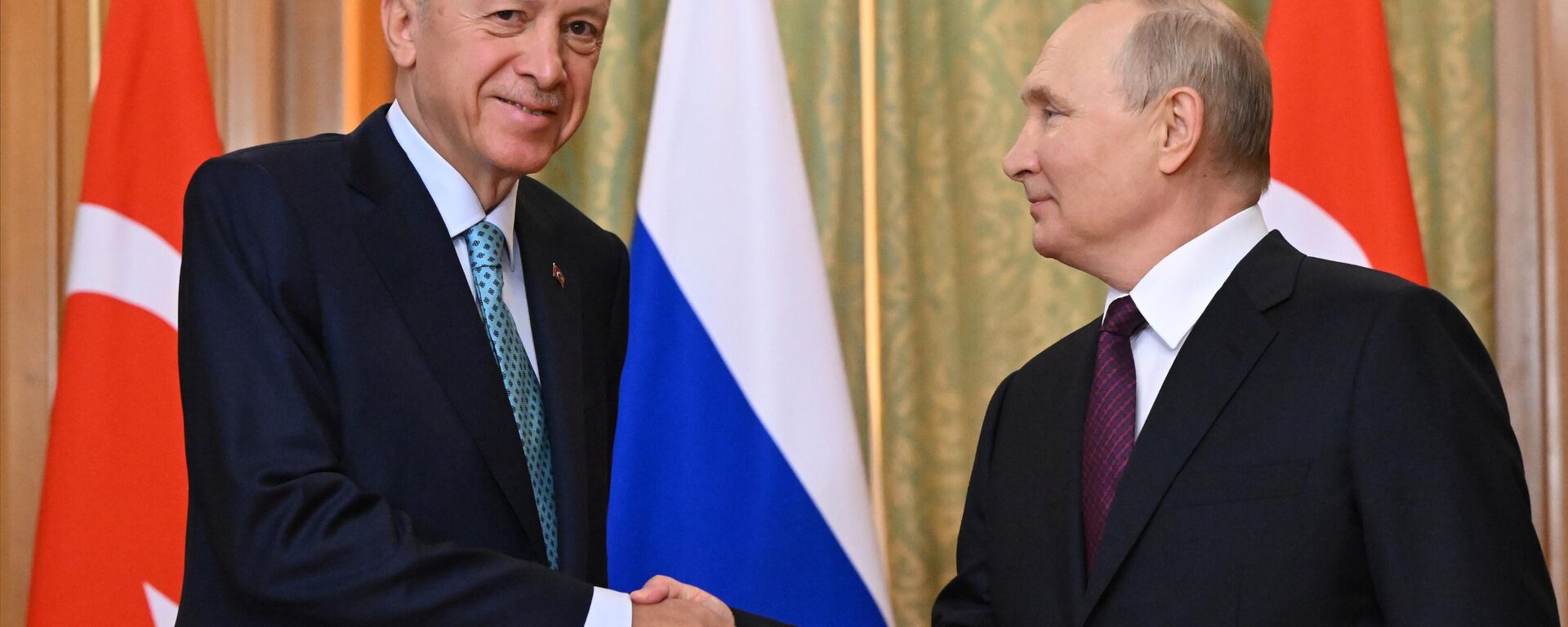
4 September 2023, 10:21 GMT
